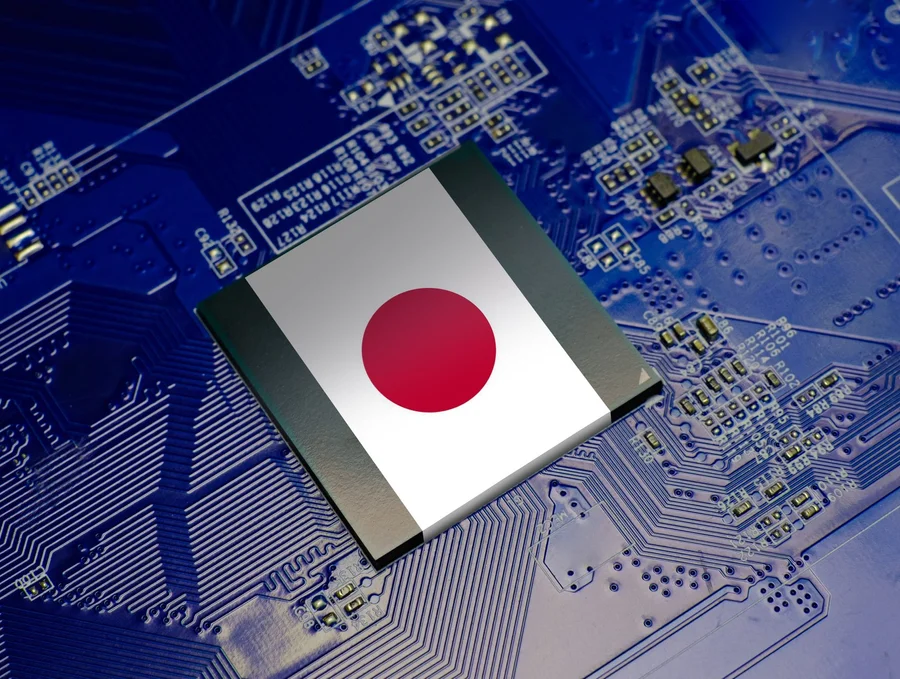Japan’s government is set to unveil a US$65bn initiative to revitalise its semiconductor industry, despite challenges in recent years.
As global demand for chips surges, driven by advancements in AI and consumer electronics, countries are increasingly recognising the strategic importance of securing their supply chains.
On this wavelength, Japan seeks to reclaim its position in the semiconductor landscape, which it dominated in the 1980s but has since ceded to competitors like Taiwan and South Korea.
The Japanese government’s plan, which includes financial support exceeding 10 trillion yen (US$65bn), aims to bolster domestic chip production capabilities over several years.
The proposal will be presented during the upcoming parliamentary session and is part of a broader economic strategy to enhance Japan’s technological independence amid escalating global competition.
Japan’s focus on advanced chip production
The proposed funding specifically targets Rapidus, a joint venture established by the Japanese government and several domestic firms, including major players such as Toyota and Sony.
SOME OF THE MAIN SEMICONDUCTOR MANUFACTURING COMPANIES IN JAPAN:
- TSMC
- Rapidus
- Sony Semiconductor Solutions
- Renesas Electronics
- Kioxia
- Toshiba
- Rohm Semiconductor
Rapidus aims to initiate mass production of advanced 2-nanometer chips by 2027 in Hokkaido, in collaboration with IBM and the Belgian research organisation Imec.
The significance of 2-nanometer technology lies in its ability to produce smaller, more efficient chips that can handle complex tasks more effectively than their predecessors.
According to Reuters, Japan’s government had previously allocated approximately 2 trillion yen (US$13bn) to support its semiconductor sector.
The latest proposal represents an escalation of these efforts as Japan seeks to enhance its competitiveness in the global market.
Meanwhile, the government’s comprehensive economic package, expected to be approved by cabinet on November 22, aims for a total investment of 50 trillion yen (US$0.325tn) in the semiconductor industry over the next decade.
The draft indicates that the economic impact of these investments could reach around 160 trillion yen, (US$1.04tn) underscoring the government’s commitment to revitalising this crucial sector.
As countries worldwide grapple with supply chain disruptions exacerbated by geopolitical tensions, Japan’s initiative reflects a growing trend among nations to bolster their domestic manufacturing capabilities.
Japan navigating global competition
However, Japan’s renewed focus on its semiconductor industry comes as other countries ramp up their own efforts to secure chip supplies.

The US has invested heavily in semiconductor production through initiatives like the CHIPS Act, while European nations are also seeking to strengthen their own supply chains.
In this context, Japan’s proposal highlights the competitive landscape shaping the future of technology manufacturing.
For instance, the ARC Group, the global financial services company, notes that Japan’s semiconductor market has significantly declined “from more than 50% of global production in 1989, Japan’s share shrunk to 9% by 2022.”
This decline has been attributed to various factors, including increased competition from Taiwan Semiconductor Manufacturing Company (TSMC) and South Korea’s Samsung Electronics, both of which have made substantial investments in cutting-edge chip technology.
The Japanese government’s strategy also includes attracting foreign investment and fostering partnerships with international firms.
For instance, TSMC recently opened its first plant in Japan with considerable government support as part of its strategy to diversify supply chains away from Taiwan amid rising tensions with China.
Similarly, American companies like Micron Technology have announced plans for significant investments in Japan’s semiconductor sector.
Challenges of Japan’s vision
However, challenges remain for Japan as it seeks to modernise its chip manufacturing capabilities.
ACR Group also indicates that despite significant investments, Japan still lags behind global leaders, saying: “The country’s semiconductor industry is nearly ten years behind major chip producers such as Taiwan and South Korea.
“Though Japan remains powerful in memory chips, the country is much weaker in logic chips”.
Furthermore, concerns about funding sources for these initiatives persist; while some subsidies are derived from green transformation bonds aimed at promoting environmentally friendly projects, experts advocate for clearer funding mechanisms.
As Japan navigates this complex landscape, it must balance public investment with private sector involvement to ensure sustainable growth within its semiconductor industry.
In light of these developments, Japan’s ambition to re-establish itself as a key player in the global semiconductor market reflects broader trends in technological competition and supply chain resilience.



